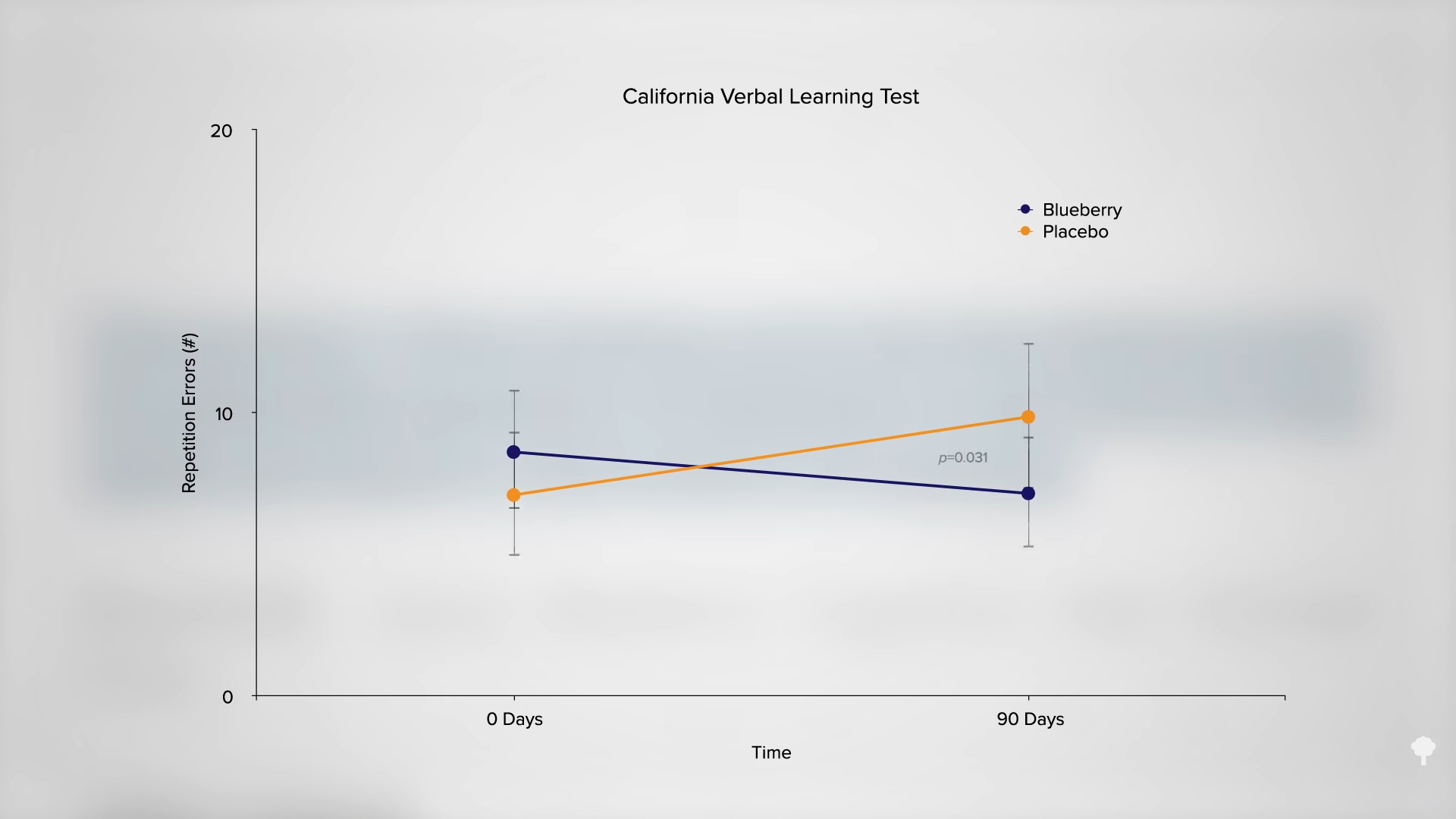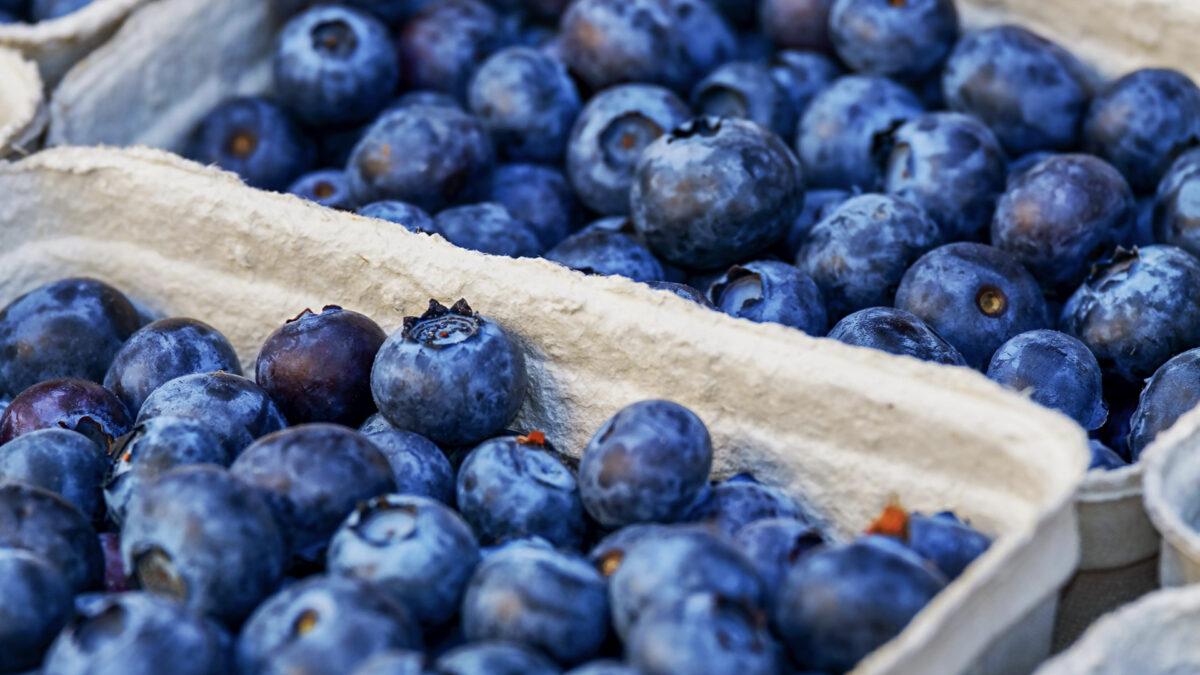Blueberries can significantly improve cognitive performance within hours of consumption.
When you search the medical literature for studies on berries, papers like this pop up: “A 3-Week-Old With an Isolated ‘Blueberry Muffin’ Rash.” Or, you’ll see pictures of strawberry tongues or read about a way to describe the appearance of stool, though “stools truly resembling currant jelly” are not very common. What is it with pathologists’ love affair with food terminology? The grossest may be the way amoeba chest infections are described—“expectoration of ‘anchovy sauce-like’ pus,” which sounds gross even without the pus.
There are actual studies on berry supplementation, such as how they can mitigate the negative effects of a high saturated fat diet on the brain and behavior, but that one in particular was in mice. Maybe a better way to mitigate would be not feeding your pet mouse a stick of butter in the first place.
Then, there are studies of proprietary berry-based nutraceutical supplements, purported to improve cognitive performance. At 1:11 in my video Flashback Friday: Benefits of Blueberries for the Brain and below, you can see how the supplement group has a steeper rise in cognitive performance over the placebo group. Looks impressive, right? Ah, but old hats will instantly recognize this as the timeless trick featured in the 1950s classic, How to Lie with Statistics. If you look closely at the chart, you’ll notice the Y axis does not start at zero. That’s to inflate the appearance. When you correct the graph and start that axis at zero, you can see the effect doesn’t look quite so impressive.

There are studies of actual berries on actual humans, but when they’re funded by berry industry trade groups, you get studies like this: “An afternoon snack of berries reduces subsequent energy intake compared to an isoenergetic confectionary snack.” Sounds great, but what’s an “isoenergetic confectionary”? Candy. Researchers compared strawberries, raspberries, blackberries, and blueberries to a handful of Jelly Babies, which are just like coated gummy bears. Do berries offer so little that you have to compare them to candy to make them look good?
You may remember I’ve talked before about that famous Harvard study where berry eating appeared to delay brain aging by up to two-and-a-half years. You don’t know if it’s cause-and-effect, though, until you put it to the test. Researchers found that “blueberry supplementation improves memory in older adults” in just 12 weeks’ time, but that was feeding them up to six cups of wild blueberries a day. Now, this was a proof-of-concept pilot study just to see if they could get any effect. We just didn’t have any studies using more realistic doses…until now.
What about just one daily cup of blueberries? Researchers found that “the addition of easily achievable quantities of blueberry to the diets of older adults can improve some aspects of cognition,” like long-term memory. In terms of the number of errors, the placebo group got worse, and the blueberry group got better, as you can see below and at 3:03 in my video.

You can even correlate the cognitive improvements with enhanced brain activation using fancy brain scan technology to actually visualize the improved blood flow to those same regions of the brain caused by the blueberry consumption.
Does it work in kids, too? Well, “blueberry treatments have shown positive effects on cognition in both animals and adult humans,” but do those these benefits transfer to children—human children? Researchers put together a randomized, double-blind, placebo-controlled study comparing about one cup of blueberries to two cups and no blueberries at all. What did they find? “Importantly, across all measures, cognitive performance improved,” and the more berries, the better. This wasn’t after 12 weeks of eating berries, either, but within hours of just a single meal with blueberries. Sounds like we should add blueberries to breakfast, especially on days our kids are having their exams.
Wait a second, healthy and delicious? That’s what plant-based eating is all about.
